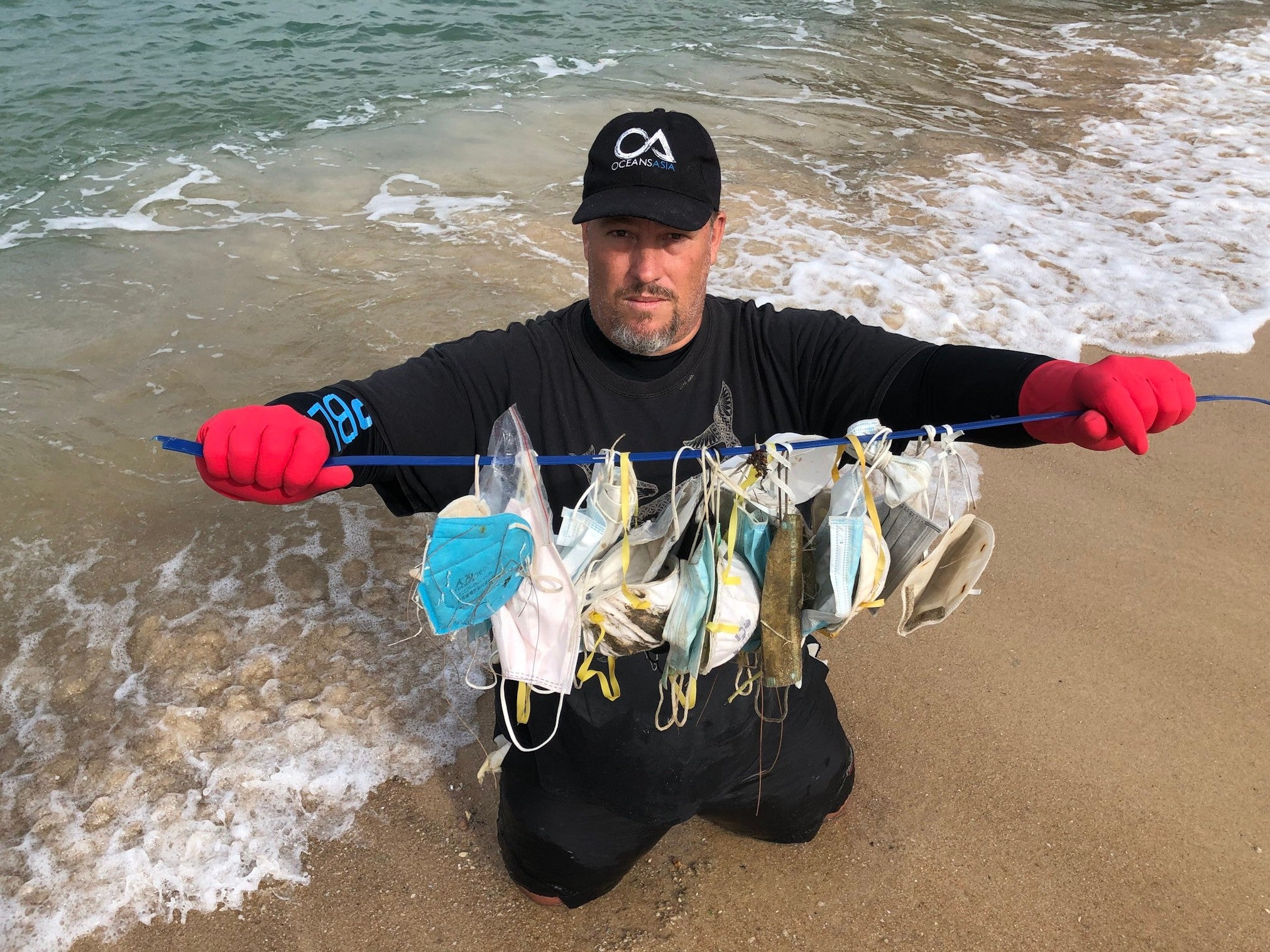The coronavirus pandemic has been seen to have a beneficial impact on air quality and pollution worldwide with reports of holes in the ozone layer closing due to the nationwide lockdowns imposed in nearly all countries affected by the virus which limited human activities including industrial work to a significant extent.
While the crisis brought a positive change, environmental experts warned that it can pave the way for other harmful effects on the environment indirectly.
For instance, there has been an immense increase in the production, sales, and usage of disposable masks and gloves around the world as they were deemed as a compulsory preventive measure to stop coronavirus spread.
While wearing masks and following other guidelines from official health agencies such as the World Health Organization is important to contain the virus, conservationists worried about the immediate increase in disposal of the plastic gloves and masks.
More people wearing disposable masks for coronavirus means the disposal rates are likely to go up as well, which is what happened recently according to the French non-profit Opération Mer Propre.
Opération Mer Propre is known for its work on removing litter in the area around the Côte d’Azur in France and for other environmental conservation and waste management works.
The organization warned about the disposal of masks for coronavirus at the beginning of the past months, highlighting that the majority is dumping gloves and masks in the ocean.
According to Joffrey Peltier, one of the operation managers for Opération Mer Propre, divers had discovered many of what they called ‘coronavirus waste’ including bottles of hand sanitizers, disposables masks, and gloves alongside other usual plastic items such as cups and aluminum cans in the Mediterranean ocean.
RELATED: New Research Shows Lockdowns Prevented Millions of Deaths Worldwide
The amount of coronavirus waste was not as much as the usual kind at the moment but Peltier states that it can possibly happen in the future and is a sign for a new kind of pollution in the ocean that can further affect the ocean and marine life.
According to Laurent Lombard from the Opération Mer Propre, authorities in France have recently placed an order for a further two billion disposable masks for coronavirus.
The constant use of masks for coronavirus and their eventual disposal in the ocean could soon end in a higher quantity of masks and other coronavirus waste in the Mediterranean ocean than jellyfish, according to Lombard, who also posted photos of divers finding masks in the ocean on his social media.
The French organization hopes the photos will encourage people to avoid using disposable masks for coronavirus and switch to reusable cloth masks as well as resort to hand washing rather than wearing latex gloves for prevention.
Peltier states it is fairly easy to follow the same preventive measures while avoiding the use of plastic while emphasizing that people should also focus on the long-term consequences of the coronavirus pandemic as well.
In the years prior to the current ongoing crisis, environmental experts had already warned on high levels of pollution in the oceans that can significantly affect marine life. According to a report from the UN Environment from 2018, around thirteen million tonnes of plastic are dumped into the oceans each year.
Around 570,000 tonnes of plastic are dumped into the Mediterranean ocean alone which is the same as dumping 33,800 bottles in the ocean every sixty seconds as said by the World Wildlife Fund.
The French politician Éric Pauget stated that these numbers may even increase with the coronavirus pandemic around the world as many of the items used on a daily basis including masks and gloves contain plastic. Therefore, there is a need to address the issue on time.


